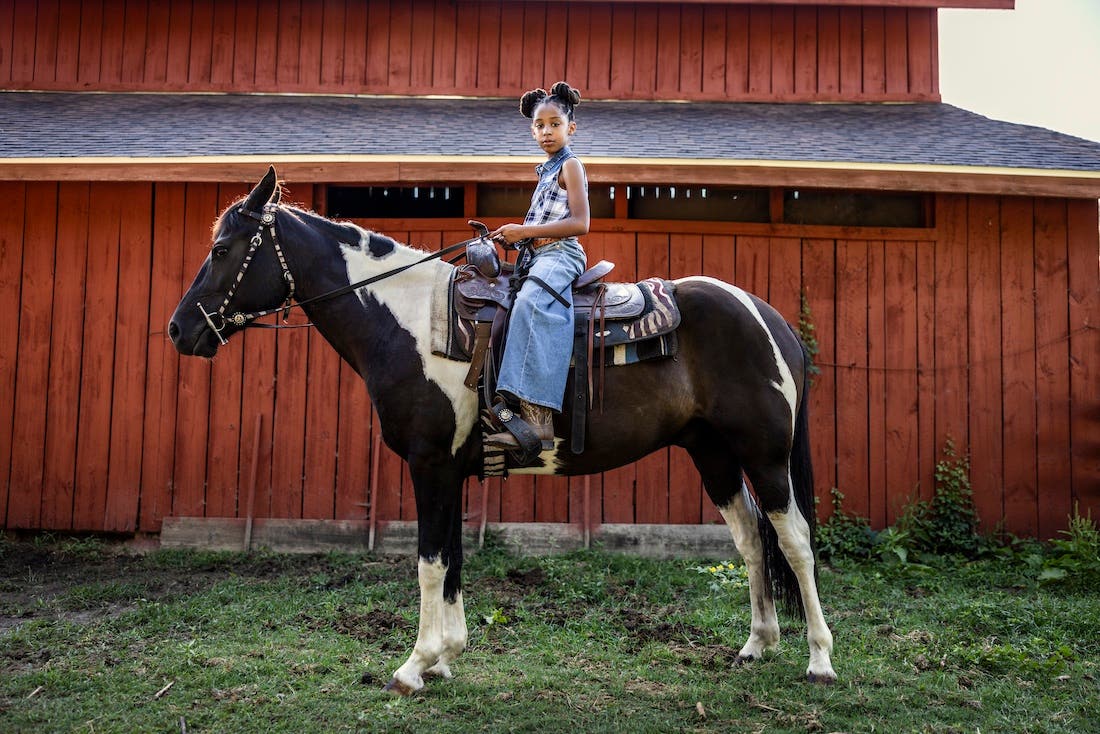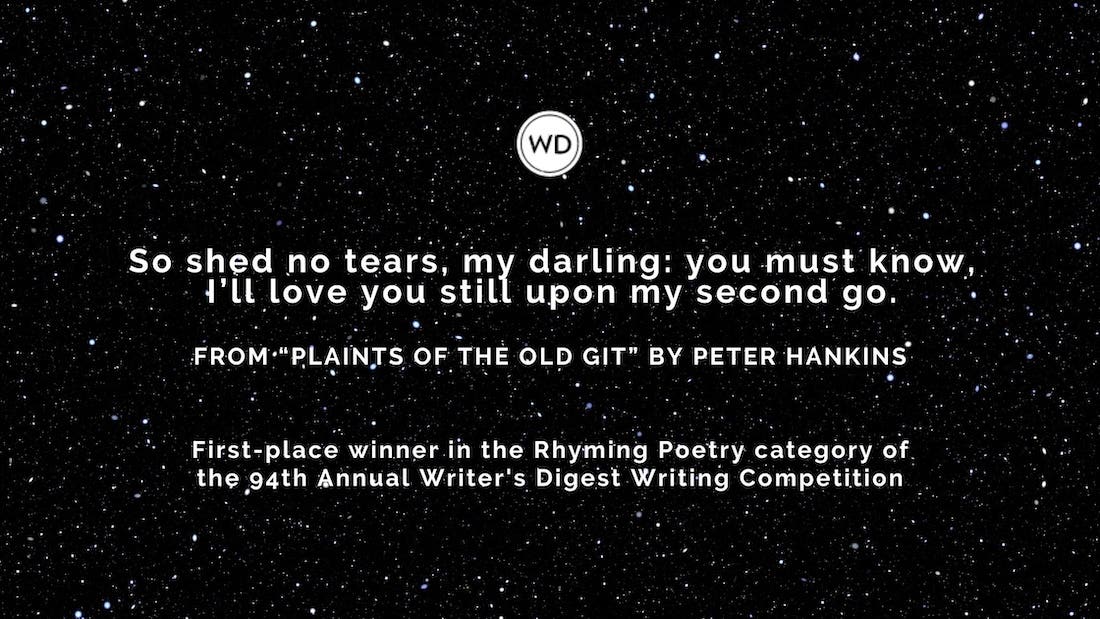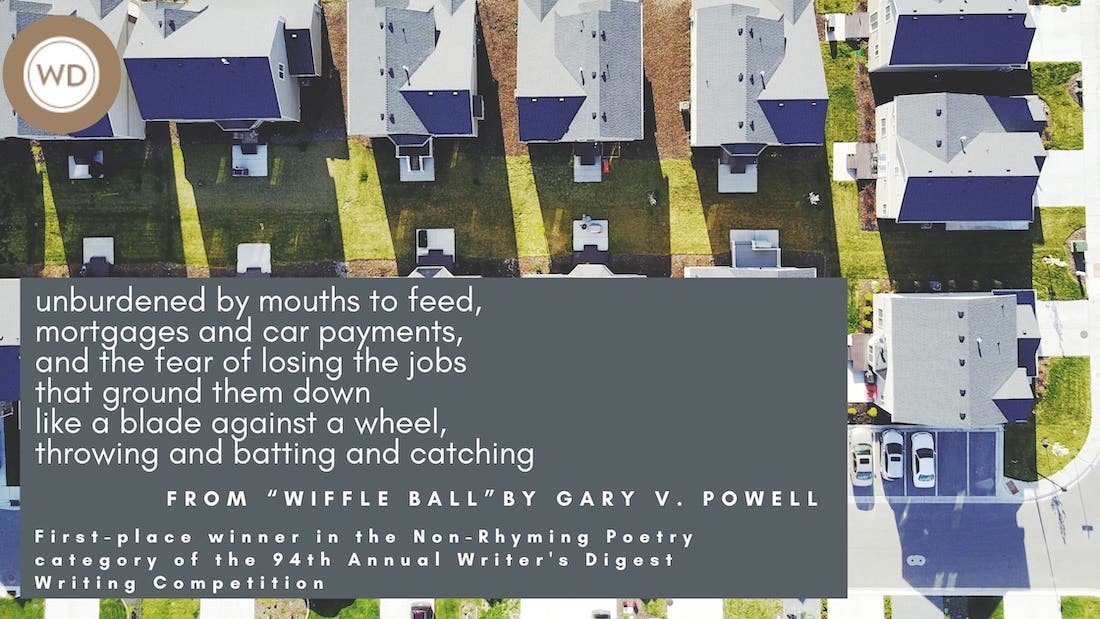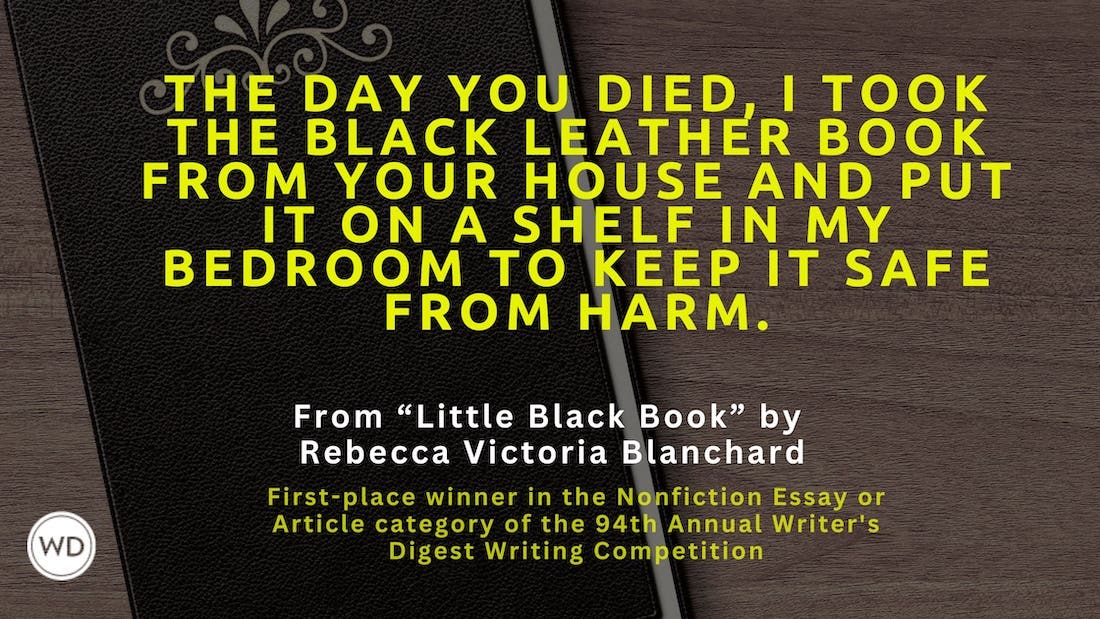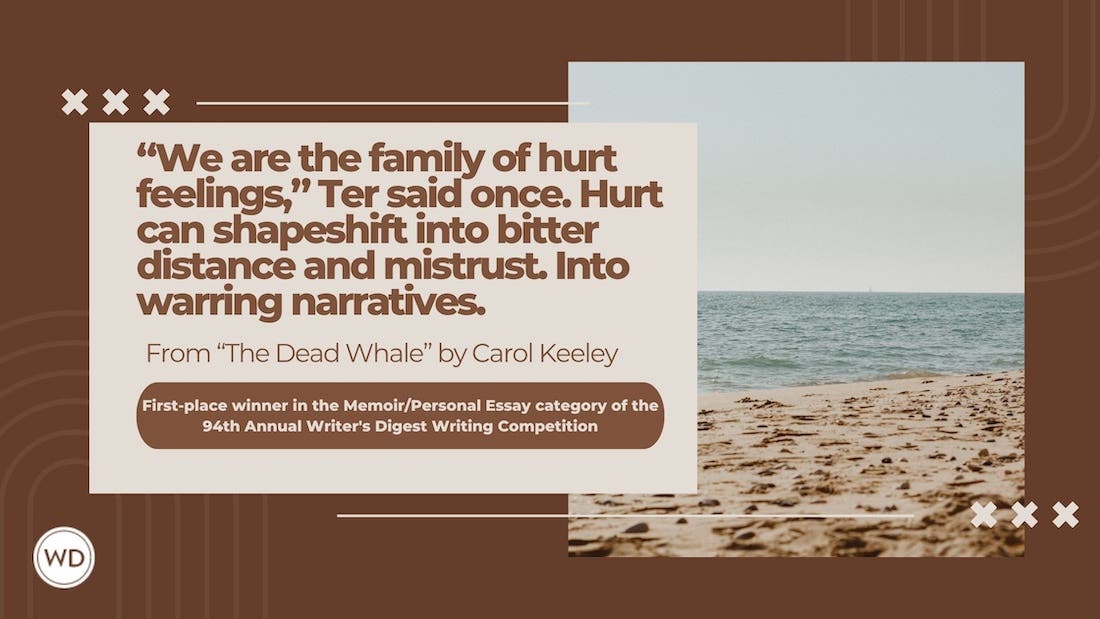Enter WD’s PopFiciton Competition – 4,000 Words Could Get You $2,500 & a Trip
Short story writers, listen up: We’re giving away $2,500, a trip to NYC to attend next year’s Writer’s Digest Conference, a chance to get your name on the cover of…
Short story writers, listen up: We're giving away $2,500, a trip to NYC to attend next year's Writer's Digest Conference, a chance to get your name on the cover of WD and more! All you have to do is write a short story of 4,000 words or fewer and enter it into any one of six categories (Thriller, Sci-Fi, Young Adult, Crime, Horror or Romance) in our Writer's Digest Annual Popular Fiction Awards. One grand-prize winner will receive all the prizes above, though other winners will receive prizes too.
You could write a short story that short this weekend—and still have time to submit!
Here are the details:
Deadline:October 15, 2014
Wondering what’s in it for you?
- A chance to win the Popular Fiction Awards Grand Prize including $2,500 and a trip to the 2015 Writer’s Digest Conference
- An announcement of the winner on the cover of Writer’s Digest*
- A chance to win the $500 Category First Prize
- Get your story promoted in Writer’s Digest and on WritersDigest.com
- Win $100 off a purchase at www.writersdigestshop.com
- Receive a copy of the 2015 Novel & Short Story Writer’s Market
*The cover announcement is being made on subscriber issues only.
How to enter:register and pay online or download a printable entry form. Regular entry fees are $25 per entry.)
Deadline:October 15, 2014
One Grand Prize Winner will receive:
- A $2,500 cash prize
- A trip to the 2015 Writer’s Digest Conference
- Win $100 off a purchase at www.writersdigestshop.com
- A copy of the 2015 Novel & Short Story Writer’s Market
- Be listed in Writer’s Digest‘s May/June issue and on WritersDigest.com
One First Place Winner in each category will receive:
- A $500 cash prize
- Win $100 off a purchase at www.writersdigestshop.com
- A copy of the 2015 Novel & Short Story Writer’s Market
- Be listed in Writer’s Digest‘s May/June issue and on WritersDigest.com
Honorable Mentions will:
- Have their stories promoted on WritersDigest.com
- Receive a copy of the 2015 Novel & Short Story Writer’s Market
Categories:
Categories:
Crime: Crime fiction is a genre of fiction that focuses on the dramatization of crimes, the detective work and procedures in solving said crimes, and the criminal motivations behind them. Mystery and detective fiction may also fit into this genre.
Horror: Horror fiction is a genre which intends, and/or has the capacity, to frighten, scare or startle readers. This genre may induce feelings of creepiness, horror and terror, and is generally unsettling for the audience. Horror can be supernatural or non-supernatural.
Romance: Romance fiction can encompass and draw themes, ideas and premises from other genres and can vary widely in setting, dialogue, characters, etc. Generally, however, romance fiction should include a love story involving two individuals struggling to make their relationship work and an emotionally satisfying ending.
Science Fiction: Science Fiction (and Fantasy) are genres that explore imaginative content, primarily related to science. This can include a variety of elements, often involving futuristic settings, science and technology, as well as space travel, time travel, extraterrestrial life, and parallel universes. Fantasy fiction often crosses over with this category, touching on similar elements such as world building and magical creatures, but it generally does not include the scientific themes.
Thriller: Thriller fiction is a genre of fiction that uses suspense and tension to dramatically affect the reader. A thriller can provide surprise, anxiety, terror, anticipation, etc., in order to provide a rush of emotions and excitement that progress a story. It should generally be based around the strength of the villain and the protagonist, as well as their struggle against each other. This category might encompass several other genres, including horror, science fiction, and crime.
Young Adult: Young Adult fiction is generally fiction meant for readers age 12-18.
Brian A. Klems is the former Senior Online Editor of Writer’s Digest, and author of Oh Boy, You’re Having a Girl (Adams Media/Simon & Schuster). Follow him on Twitter @BrianKlems.




